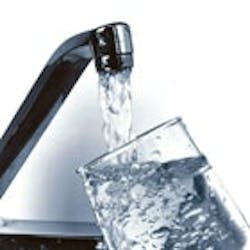Calgon Carbon Plant Receives NSF Certification for Carbon Reactivation
Calgon Carbon Corp. announced that its Columbus, Ohio, plant received certification from NSF Intl. under NSF/ANSI Standard 61: Drinking Water System Components – Health Effects for custom reactivated carbon for potable water applications.
Calgon Carbon’s Columbus and Blue Lake, Calif., plants are the only facilities in the U.S. that have been certified by NSF Intl. to reactivate spent activated carbon that has been used to treat municipal potable water. NSF/ANSI Standard 61 is the nationally recognized measure to evaluate the health effects for components and materials that contact drinking water.
Reactivation is a high-temperature thermal process, whereby spent granular activated carbon can be safely and cost-effectively recycled back to customer facilities for reuse. During the reactivation process, adsorbed organic compounds are destroyed, and the activated carbon’s adsorptive capacity is restored. This results in a cost savings over the use of virgin carbon. Reactivation/recycling also reduces CO2 footprint as compared to virgin activated carbon.
To obtain certification from NSF, Calgon Carbon completed a multi-month process that included submission of applications and product samples, data collection and monitoring.
Source: Calgon Carbon Corp.
